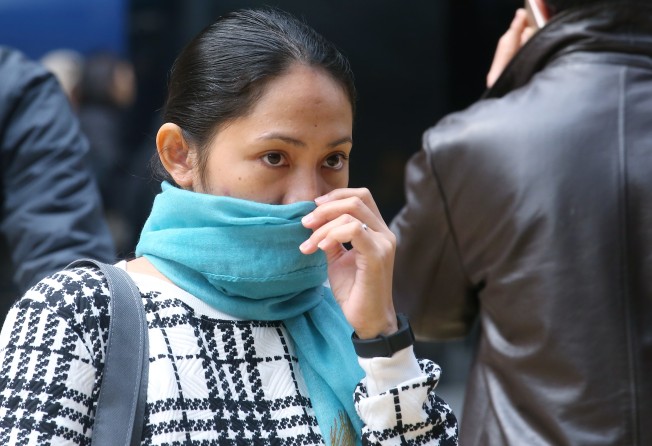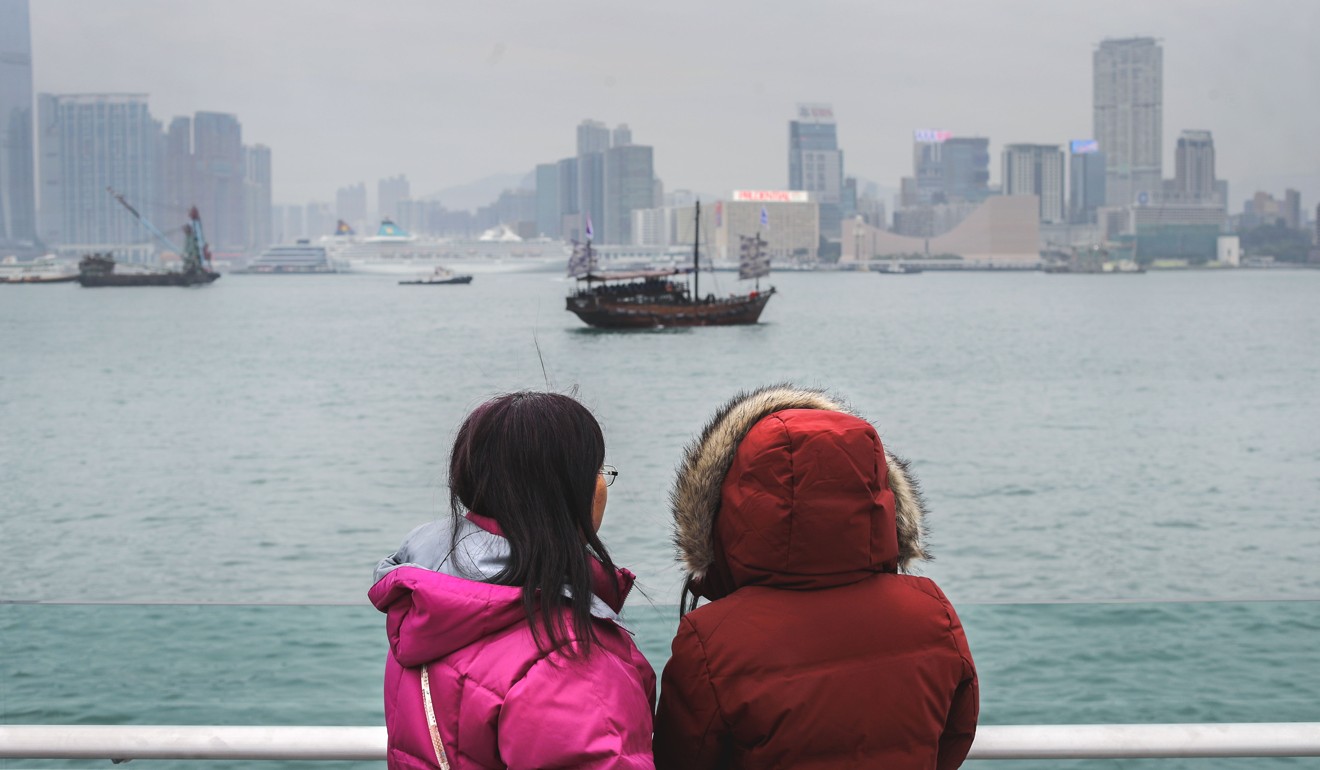Cold awakening for Hong Kong, as temperatures plunge amid deadly winter flu season
- Slightly warmer weather expected next week, with minimum temperature to rise above 16 degrees next Wednesday

Hongkongers rushed to work in their coats and scarves early on Wednesday morning as the temperature fell to an average of 13 degrees Celsius.
The city can expect only slightly warmer weather next week, with the minimum temperature to rise above 16 degrees next Wednesday, according to the Hong Kong Observatory’s forecast.
Air temperatures in Ta Kwu Ling on Wednesday morning plunged to six degrees, while Yuen Long Park and Shek Kong saw temperatures drop to nine degrees.
It was almost as cold in Sha Tin, Tai Po and Tseung Kwan O at 11 degrees. Over on Hong Kong Island, it was 12 degrees in Happy Valley and 14 degrees in Shau Kei Wan.
“A dry northeast monsoon is affecting the coastal areas of Guangdong. Locally, temperatures in the urban areas fell to about 13 degrees this morning,” the Observatory said.
“Exposed inland areas cooled more rapidly overnight under clear sky and relatively weak winds. Temperatures over parts of the New Territories fell to 10 degrees or below.”
The forecaster said the maximum temperature would be about 19 degrees on Wednesday with light-to-moderate northeasterly winds.
The low temperatures come as the city grapples with the deadly winter flu season, which has claimed about 66 lives so far.
Nurses at public hospitals have called on the government to tackle an ongoing staffing crisis. On Tuesday, about 5,800 people sought help at the city’s accident and emergency departments in public hospitals, according to the Hospital Authority. The inpatient occupancy rate was 110 per cent.
The Centre for Health Protection has warned that local seasonal flu activity may continue to rise in the period ahead, urging the public to heighten its vigilance.
The centre has appealed to parents to arrange vaccination for their children. The elderly should also get vaccinated as soon as possible as it takes about two weeks for antibodies to develop in the body, the centre said.
Dr Choi Kin, former president of the Hong Kong Medical Association, said fluctuations in temperature could affect people’s immune systems and make them more susceptible to the flu.
“That’s why you could cough and catch a cold more easily,” he said.
As to whether adults should, like children and the elderly, also get vaccinated, Choi said it was optional as their bodies were generally stronger and they were less likely to develop complications.

For the rest of the week, the temperature range will be about four to five degrees, with a minimum temperature of 15 degrees and a maximum temperature of 19 degrees on Monday. The minimum temperature will rise to 17 degrees next Wednesday, with a maximum temperature of about 19 degrees.
The low temperatures come after Hong Kong experienced its warmest dahan – the traditional Chinese “day of major coldness” – in 50 years last Sunday. On that day, the Observatory said the highest temperature recorded at its Tsim Sha Tsui headquarters was 23.4 degrees.
Dahan is the last of 24 solar terms in the traditional Chinese calendar. The terms, which helped farmers plan agricultural work, begin with lichun, or the “start of spring” in early February. Dahan usually falls between January 19 and 21.
The three warmest dahan on record in Hong Kong were in 1905, 1954 and 1969, when temperatures at the Observatory rose to 24.8, 24.4 and 26.4 degrees respectively.